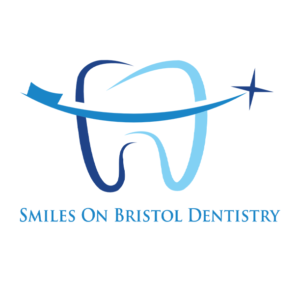Santa Ana Dentist, Dr. Danial Kalantari, of Smiles on Bristol Dentistry, knows that many patients love their grains and breads. However grains and complex carbohydrates can contribute to tooth decay. The teeth actually have a much greater ability to heal than most people are aware. Tooth enamel does not heal, per se, but it can “remineralize.” Reducing grain consumption, and cultivating a diet rich in nutrients is a natural way to help prevent and heal tooth decay.
When tooth enamel is hit with acids or abrasives like aggressive tooth brushing or tooth grinding, the minerals wear away in a process called demineralization. Each person’s saliva contains a combination of phosphorus and calcium that bathes over teeth. Under proper oral pH levels, these minerals will bind with the enamel and fill in areas that have weakened. Many circumstances can prevent proper remineralization from happening. If the pH of the mouth becomes acidic either due to the consumption of acidic foods and beverages, or from bacteria in the mouth releasing acid, then the teeth will lose minerals. Areas of decay can also become blocked by stuck food particles which prevents healing saliva from reaching the tooth. Many medications and conditions can cause dry mouth, as well, that prevents the body from producing proper levels of saliva so the teeth do not receive the saliva bath they need.
Almost everyone is aware that reducing your consumption of sugar will greatly improve the condition of your mouth. This is because the bacteria in your mouth live off of sugar and then release lactic acid onto your teeth. Simple sugars are the biggest culprits because bacteria can use the sugar immediately as it enters your mouth. More complex-sugars are less of an issue because they reach the stomach, or can be cleaned out of the mouth before they can be converted into sugars that are edible to the bacteria. However, if bits of complex-sugars are left, or get stuck in the mouth, the bacteria will convert them to simple sugars and will use them to create acid.
Most people also know that acidic foods will immediately hurt the teeth. Some of the biggest offenders are sodas, citrus fruits (particularly lemons), alcoholic beverages, blueberries, cranberries, vinegar, pickled foods, ketchup, and many grains. Grains are complex carbohydrates so they can be broken down into sugars that feed bacteria. However, grains and beans also contain a substance called “phytic acid.” Phytic acid not only damages the teeth, but has been shown in a number of studies to prevent the body from absorbing a number of minerals including iron, magnesium, calcium, and zinc. A study performed in 2013 found that when people reduced their phytic acid intake, their iron absorpotion increased by as much as twelve times. Because phytic acid prevents mineral absorption, it can be preventing your teeth from properly remineralizing.
Phytic acid is most common in processed grains. Certain techniques of processing can remove or reduce the amount of phytic acid. The most common methods to reduce phytic acid are sprouting, soaking, and fermenting your grains. Traditional sourdough techniques remove a large amount of phytic acid, as does baking for long periods of time.
Carbohydrates are a key part of your diet and should not be removed completely. However, developing a diet that focuses mostly on proteins and nutrient-rich fruits and vegetables will help your oral health. This type of diet will promote more nutrients in your body which are key to keeping your body running properly. The body is naturally made to be able to repair itself, but it needs nutrients to repair itself effectively. A study on the benefits of nutrition for oral health was performed on a group of children. The children were divided into three groups and each group was assigned a different diet. One group was assigned their normal diet plus consistent consumption of oatmeal, a grain high in phytic acid. A second group was assigned to eat normally, plus take vitamin D. The last group was assigned a diet high in proteins, vegetables and fruits with minimal amounts of grains and a supplement of vitamin D. The amount of tooth decay in their mouths was measured at the beginning of the study and at the end. The group with the low-grain, nutrient-rich diet had almost complete healing of any tooth decay. The middle group had a small improvement in tooth health. The oatmeal, high-grain group saw a huge increase in tooth decay with limited remineralization.
The most important minerals for tooth remineralization are phosphorus, calcium, and vitamin D. Phosphorus and calcium are what actually form the tooth enamel in remineralization. Calcium is not easily absorbed by the body on its own, but vitamin D has been shown to significantly increase the amount that calcium is absorbed by the body. The body synesthizes Vitamin D from sunshine, but you can also get it from many types of sea food and shiitake and button mushrooms, as well as, supplements.


